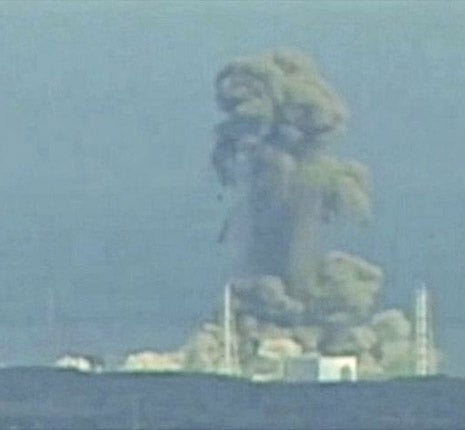Nuclear 'renaissance' will be put on hold around the world

Your support helps us to tell the story
From reproductive rights to climate change to Big Tech, The Independent is on the ground when the story is developing. Whether it's investigating the financials of Elon Musk's pro-Trump PAC or producing our latest documentary, 'The A Word', which shines a light on the American women fighting for reproductive rights, we know how important it is to parse out the facts from the messaging.
At such a critical moment in US history, we need reporters on the ground. Your donation allows us to keep sending journalists to speak to both sides of the story.
The Independent is trusted by Americans across the entire political spectrum. And unlike many other quality news outlets, we choose not to lock Americans out of our reporting and analysis with paywalls. We believe quality journalism should be available to everyone, paid for by those who can afford it.
Your support makes all the difference.More than the immediate safety of the local population hangs on the ability of Japanese engineers to control the three damaged atomic reactors at Fukushima. In the balance is the whole future of the world's "nuclear renaissance".
In the last few years nuclear power, once the bogeyman of the energy sector and the subject of worldwide popular hostility, has undergone a transformation in its political acceptability. From being part of the problem, it has begun to be seen as part of the solution to two problems of increasing concern: energy security and climate change.
Nuclear power stations offer independence from unreliable energy sources, such as Russian gas, runs the argument, and they produce electricity without the carbon emissions from the fossil fuels that cause global warming.
Because of this reasoning, countries which after the disastrous Chernobyl accident of 1986 seemed to have turned their backs forever on the idea of building new nuclear reactors – including Britain – have once again begun to embrace the atomic way. Currently, 62 new reactors are being built around the world, and a further 324 are on the drawing board, with Britain planning its own new generation of up to 10 new nuclear power plants.
But Fukushima has once again raised, in the most dramatic way possible, the most resonant objection to nuclear power: danger to the public. The sight, on prime-time TV, of a reactor building blowing up, then the news that a second one has exploded, will scare the living daylights out of millions of people, and it will avail little to tell them that this was not actually a "nuclear explosion", it was merely that of hydrogen vented from the reactor cores. And, of course, worse may be to come.
Although the three earthquake-damaged reactors at Fukushima have leaked some radioactivity, there has not been a really major discharge as there was at Chernobyl, when the overheating reactor core blew its containment vessel apart and sent a plume of radioactivity from Ukraine as far across Europe as Ireland.
At Fukushima, it appears that the solid-steel pressure vessels which surround the three nuclear piles have so far remained intact, and informed consensus seems to be that a rupture is unlikely to happen, as Japanese engineers struggle to cool the radioactive cores with sea water. So what needs to be assessed is how much damage to the reputation of the nuclear industry has been done by what has happened already – and the answer seems to be, quite a lot.
"I think this will make nuclear power more unacceptable to a broader range of people," said Tom Burke, the British environmentalist and government adviser who has been one of the most articulate opponents of new nuclear plants. "What's happening at Fukushima plays into the rapidly growing mood that this is a world in which everything is uncertain.
"I suspect you'll find quite a big change, particularly in the local areas in Britain around the potential sites for new nuclear plants. You'll see a very big shift in the public mood quite quickly – that would be my guess."
A sign of the apprehension being felt by the nuclear industry over Fukushima could be seen yesterday in the cancellation of a briefing on a report on Britain's nuclear future, prepared by the Smith School of Enterprise and the Environment at Oxford University, headed by Tony Blair's former Chief Scientist, Sir David King.
In the Blair government, Sir David was one of the loudest voices warning of climate change – and one of the principal proponents of nuclear as a solution. He was due to give the briefing himself in Westminster this morning butit has been postponed, his spokesman conceded yesterday, "due to events in Japan."
Join our commenting forum
Join thought-provoking conversations, follow other Independent readers and see their replies
Comments